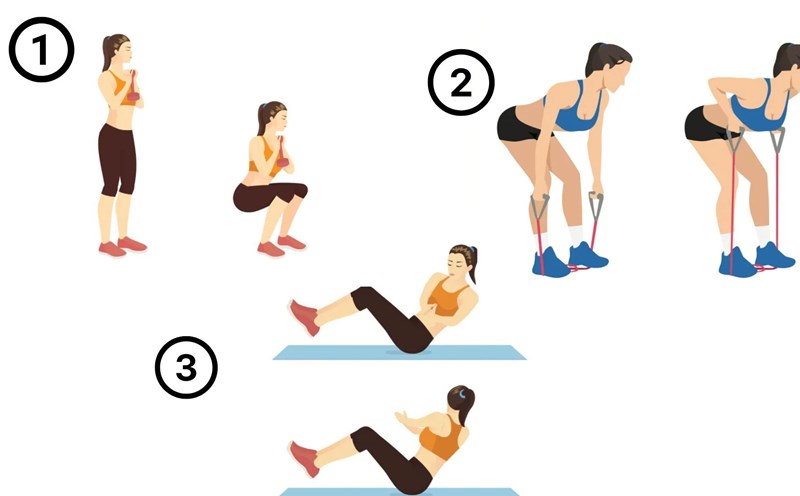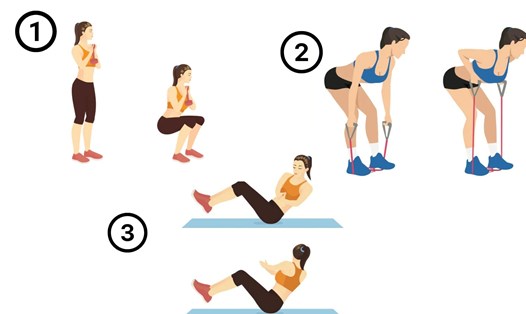According to Dr K Kranthi Kumar, Nephrologist, Asian Institute of Nephrology and Urology, Hyderabad (India), high-intensity interval training (HIIT) does have many health benefits, such as improving muscle strength, cardiovascular fitness, reducing body fat and increasing endurance. However, if not done properly or excessively, HIIT can pose some risks to bladder and kidney health.
Benefits of HIIT Workouts
Increased endurance: HIIT helps improve muscle and cardiovascular performance, increasing endurance.
Reduce body fat: This method helps burn calories effectively, supports fat loss and maintains ideal weight.
Improve muscle strength: HIIT workouts often combine strength exercises and increase the difficulty over time, helping to build muscle.
Save time: With interval training, you can complete an effective workout in a short amount of time.
Risks to bladder and kidney health
Increased stress on the kidneys: When you perform high-intensity exercises, your body produces many toxic waste products, including uric acid and other metabolites. This can increase the stress on your kidneys, especially if you do not drink enough water.
Skeletal muscle damage and myoglobin: Heavy, high-intensity exercise can cause rhabdomyolysis, in which muscle fibers break down and release myoglobin into the blood. Myoglobin can damage the kidneys as it is filtered through the kidneys.
Kidney stones: High-intensity exercise can increase the risk of kidney stones if the body is not supplied with enough water to remove waste products. When performing heavy exercises, the body will sweat a lot, leading to dehydration and reducing the volume of water in the body. At that time, the concentration of minerals such as calcium, oxalate and urate in the urine will increase, creating favorable conditions for the formation of kidney stones.
Bladder vulnerability: High-impact exercises can put increased pressure on the bladder. For people with bladder problems, this can increase the risk of problems like incontinence or cystitis.
How to minimize the risk
Drink enough water: Make sure your body is always hydrated to support the detoxification process and help your kidneys function effectively.
Don't overtrain: Make sure to take adequate rest between workouts to give your body time to recover.
Enhance preparation: Warm up thoroughly before exercising and perform warm-up movements to avoid injury.
Listen to your body: If you experience any pain or discomfort, stop exercising immediately and consult your doctor.
HIIT can have many health benefits but can also pose risks if not done properly, says Dr K Kranthi Kumar. Maintaining a proper exercise regime and taking good care of your body is important to ensure long-term health.










